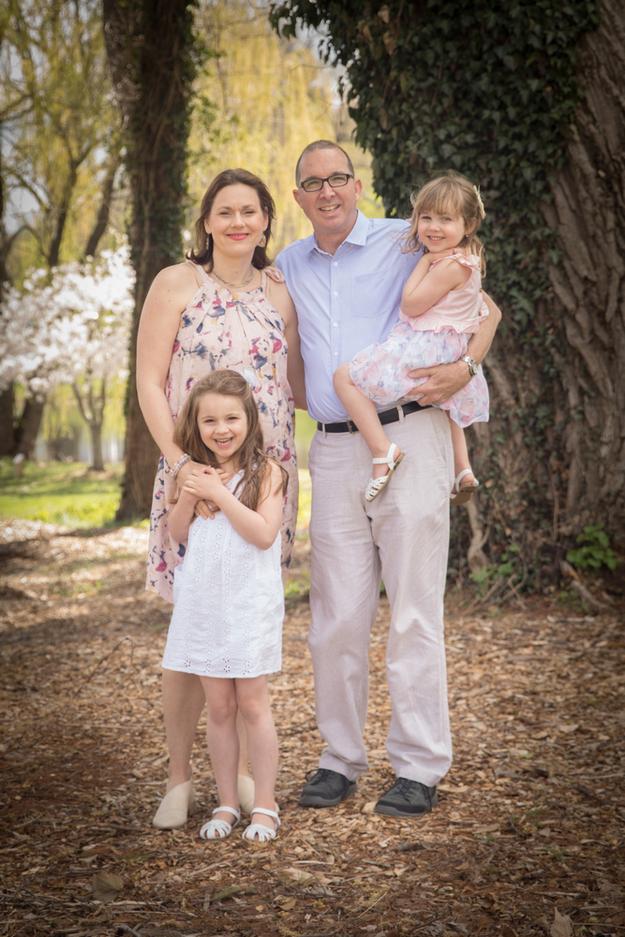Even after twenty years in the US, Katarína Bridová prepares a Slovak Christmas for her family: lentil soup and fish with potato salad instead of the traditional American turkey for dinner.
They eat their Christmas dinner on December 24, according to Slovak tradition. Bridová finds all the ingredients she needs at the Polish store nearby.
"They've got everything imaginable, from food to magazines," said the Slovak professional who made her way into the American world of finance. "We even find Slovak crosswords for my parents when they are visiting."
Along with her American husband and their two preschool-age daughters, she lives in Connecticut. Her children then experience a Slovak Christmas even if they do not really know Slovakia that well. Since the pandemic complicated intercontinental travel, only the younger daughter has been to Slovakia so far.
A successful woman in a man’s world
After 20 years in the USA, Katarína Bridová works for one of the most respected financial institutions in the world, Morgan Stanley. Despite the aggressive working hours, she says it is a dream job for her.
As vice president at Morgan Stanley she administers three private credit funds offering loans to medium-sized companies. Through private equity firms they are able to offer these companies larger amounts than regular banks, for longer periods. Each of the funds administered by the successful Slovak is worth more than a billion dollars.
The New York financial world gathers the world’s most assertive talent. “It’s well known to be a world dominated by aggressive men. At the same time, women are encouraged to make it, too.”
Bridová has managed to find her place in this world after she understood what was expected of her: to raise her hand when she needs help, as well as when there is an opportunity she wants to take. “I was first hired to administer one fund, but when I proved myself, we ended up at a place where I’m administering three funds at once. It’s not just because of my good time management, but also because they knew I always ask when I don’t know something, and I’m not afraid of new things.”
Time management and the good organization of one’s work is paramount for success in her profession, according to Bridová. Effective communication is key as well. “Communication is definitely a must. When things start going wrong, one needs to speak up quickly and talk it out."
Life in the US was a shock at first
Bridová did not think of studying in the US. She learned good English at the Evangelical lyceum in Bratislava thanks to American lecturers and pastors. It was from them that she learned about the possibility of winning a scholarship at an American university through sports.
Once she made it to the University of Maryland, she needed to come to terms with a number of obstacles: financial, cultural and language-related, as well as the sudden great distance from her family in Slovakia. Her scholarship covered her tuition fees, but it did not suffice for other expenses. That was why Bridová needed to find a job alongside her studies.
"I also needed to come to terms with the fact that many students around me had to pay that tuition out of their own pockets," she admitted.
The language barrier complicated her life in the US at first. "Initially, I did not always understand my classmates perfectly well, and I tried to hide that. We still laugh about it together," she said.
The biggest shock came from the fact that she suddenly needed to join the life of a huge university. "Nothing could have prepared me for a campus with 50,000 students," Bridová recalls her beginnings in the US.
At that time, she was not sure she wanted to stay and live on the other side of the ocean. Gradually, she gained experience and built the self-confidence that living abroad requires.
Work must bring joy
Life in New York is first and foremost about hard work, according to Bridová.
"We work hard late into the night. People are surprised to find out how much I work. I work for every single cent I make," Bridová said. Yet she likes her career and she feels happy, also thanks to the support she continues to receive from her husband and the fact that they managed to find a work-family balance together.
"Everyone needs to find what works best for them. When you work 12 hours a day, it must not be forced. It should bring you joy, especially if it's not your own company you're working for. One needs to find what brings one joy, and be happy with who they are."
The decision to live abroad also means a decision to live away from one's family. Bridová admits that it is hard even after 20 years to be far from her parents and friends.
"When I was at school, we could afford to phone only once in a while," she recalled. "Ten minutes cost 50 dollars, unimaginable now. My parents could not imagine what I was going through and they were happy I was in the US. Today, technology allows us to be in more frequent contact."
Easier among optimists
Bridová maintains Slovak culture and passes it on to her daughters, not just at Christmas. Through the Slovak community in the US, she keeps in lively contact with Slovaks who, just like her, know how hard it sometimes gets to live abroad and always feel like a stranger. "It's a secondary family of sorts, we cheer for one other and we can call each other if anything comes up."
Now she only comes to Slovakia as a visitor, and so focuses on things that bring her joy than the political situation in the country. She wishes Slovakia's people were more openminded towards the unknown, and more positive.
"In a way, one needs to appreciate what one's got. And since social networks are only about shortcuts, people can easily misunderstand. Nobody gives you anything for free, and it's always about what you invest."
It is a big difference for people not to see examples of those who are humble yet adhere to the right values and succeed. "America pushes you into being positive and when you are surrounded by optimists, it's easier to kick off. It would be great if people in Slovakia get to see that there is a light at the end of the tunnel and one should not give up."
What would convince her to come back and live in Slovakia? "A pension," she laughs. "Even after twenty years I have friendships for life there. I would definitely like to give my two daughters a chance to see where their mother grew up, spend summers there, or choose to study in Europe."
This article was published with the support of a grant from the Ministry of Foreign and European Affairs of the Slovak Republic.


 Katarína Bridová (source: Courtesy of K.B.)
Katarína Bridová (source: Courtesy of K.B.)
 Katarína Bridová and her family. (source: Courtesy of K.B.)
Katarína Bridová and her family. (source: Courtesy of K.B.)